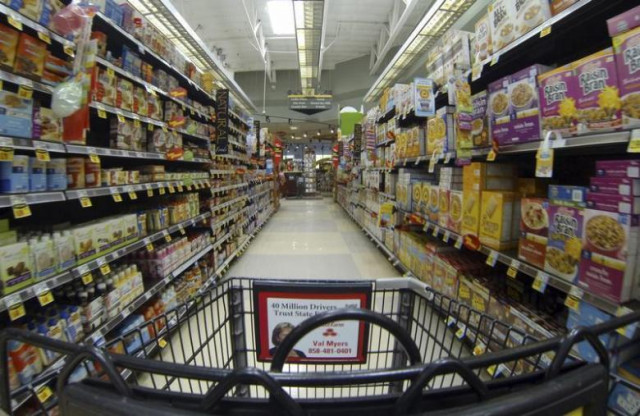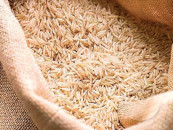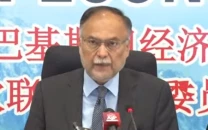Mix of blessing and curse for energy consumers
Domestic consumers and farmers suffer; industries get bonanza of billions of rupees

Representational image of a super store. PHOTO: REUTERS
The year was divided between two governments - the outgoing Pakistan Muslim League-Nawaz (PML-N) and the incoming PTI. The current government has so far proved tough for the general consumers who are reeling from growing inflation following increase in gas and electricity tariffs.
On the other hand, the industrial sector got a bonanza of billions of rupees in different ways despite having been defaulted on payment of Rs400 billion worth of gas infrastructure development cess to the government.
An increase in gas tariffs made it tough for farmers to continue earning reasonable margins on their crops as prices of urea - a vital input - went up. While big guns enjoyed a benefit of billions of rupees in the shape of subsidy, small farmers were suffering, though they met food requirements of the entire country. However, they were being provided electricity at a low tariff.
After coming to power in August 2018, the PTI government raised natural gas prices by up to 143% in an attempt to recover Rs94 billion annually from the consumers, in effect, slashing consumer subsidies which were a big drag on the government’s budget.
The tariff hike was also aimed at turning the two public gas utilities of the country financially viable but the move sent inflation soaring in the wake of rise in prices of scores of commodities. The gas price increase hit the hardest 9.4 million domestic users, of which 3.6 million fell within the lowest income slab and 2.63 million in the second lowest category. Owing to the increase in gas prices for power producers, electricity was also expected to become expensive by 12%.
Power prices
The PTI-led government jacked up electricity tariffs by around 33% to recover an additional Rs144 billion from the consumers every year but it refrained from increasing the tariff for consumers using up to 300 units a month. It approved an increase of at least Rs1.2 or 10.3% per unit in the average electricity tariff, taking it to Rs12.91. In a bid to give a boost to the agriculture sector, the government also drastically slashed the power tariff, bringing it down by Rs5 to Rs5.35 per unit.
Oil prices
The consumers also suffered from frequent increase in prices of petroleum products in calendar year 2018. Earlier, high-speed diesel price stood at Rs95.83 per litre, petrol Rs81.53, kerosene oil Rs64.32 and light diesel oil Rs58.37.
Following monthly upward and downward revisions, the petrol price reached Rs95.83 per litre at the end of December, high-speed diesel cost Rs110.94, kerosene oil Rs83.50 and light diesel oil Rs77.44.
The price hike in high-speed diesel, widely used in agriculture and transport sectors, largely impacted the life of common man and triggered inflationary pressures.
The increase in the price of petrol, primarily consumed in light engine vehicles, also had a direct impact on the everyday life of people as it increased the cost of travel for car owners. And with the rise in the price of kerosene oil, the consumers in far-off areas like northern parts of the country, where liquefied petroleum gas (LPG) was not readily available.
Still, the domestic consumers of remote areas and even in urban centres heaved a sigh of relief as the government cut taxes on LPG import. The PTI administration withdrew the regulatory duty of Rs4,669 per ton on LPG import in a bid to improve fuel supply. General sales tax on LPG was also slashed to 10%.
The tax reduction led to an increase in LPG supply in the winter season when its demand swelled substantially. Despite that, the consumers had to pay higher prices for LPG purchase due to the monopoly of LPG dealers. The country has a surplus of furnace oil stock as the power plants are consuming LNG instead of oil. Keeping the debt situation in view, the government slapped a ban on further imports of furnace oil.
Published in The Express Tribune, January 1st, 2019.
Like Business on Facebook, follow @TribuneBiz on Twitter to stay informed and join in the conversation.



















COMMENTS
Comments are moderated and generally will be posted if they are on-topic and not abusive.
For more information, please see our Comments FAQ